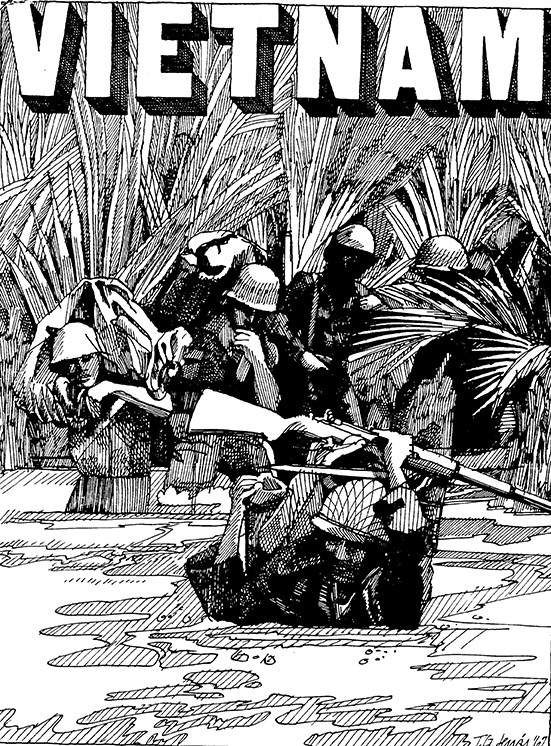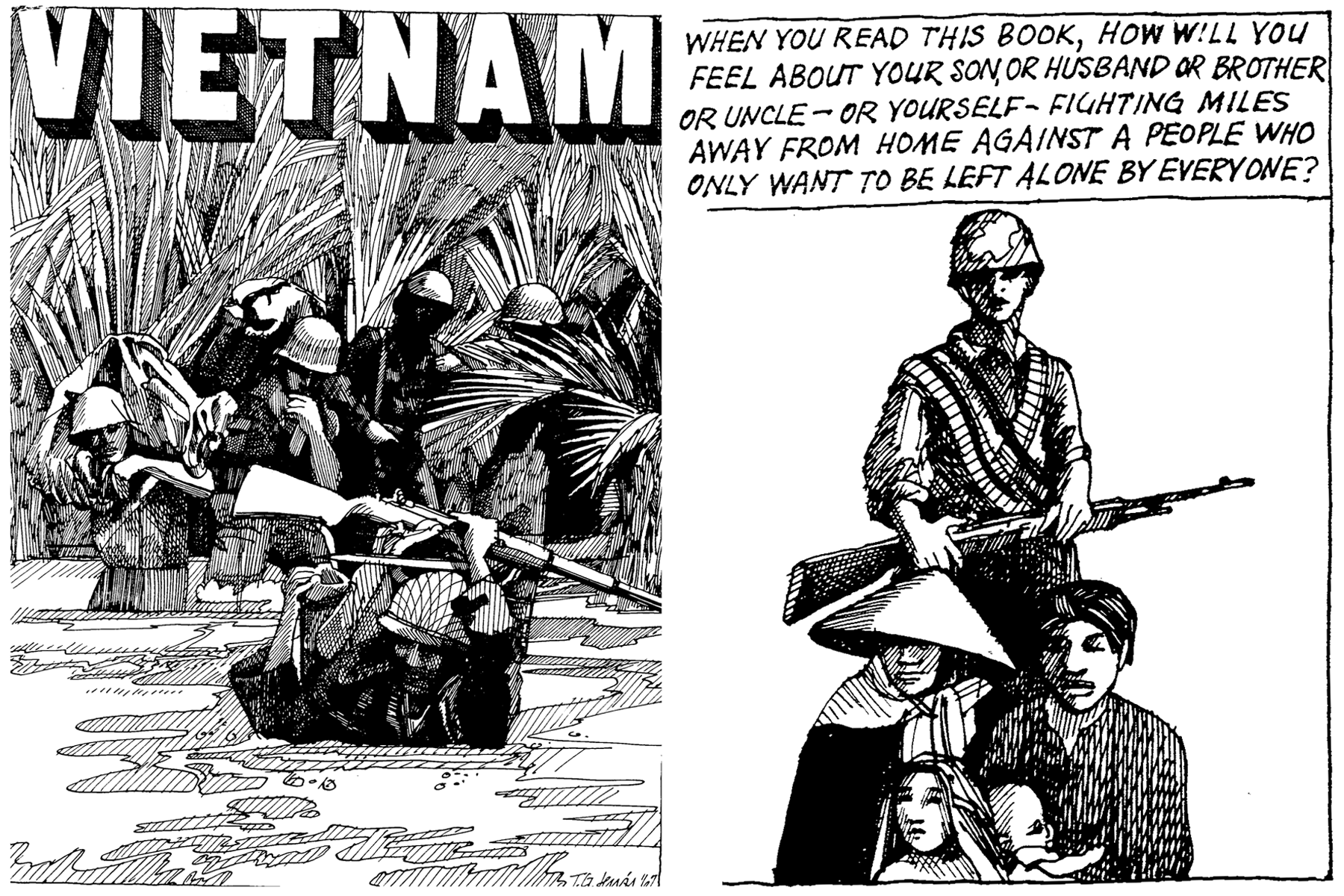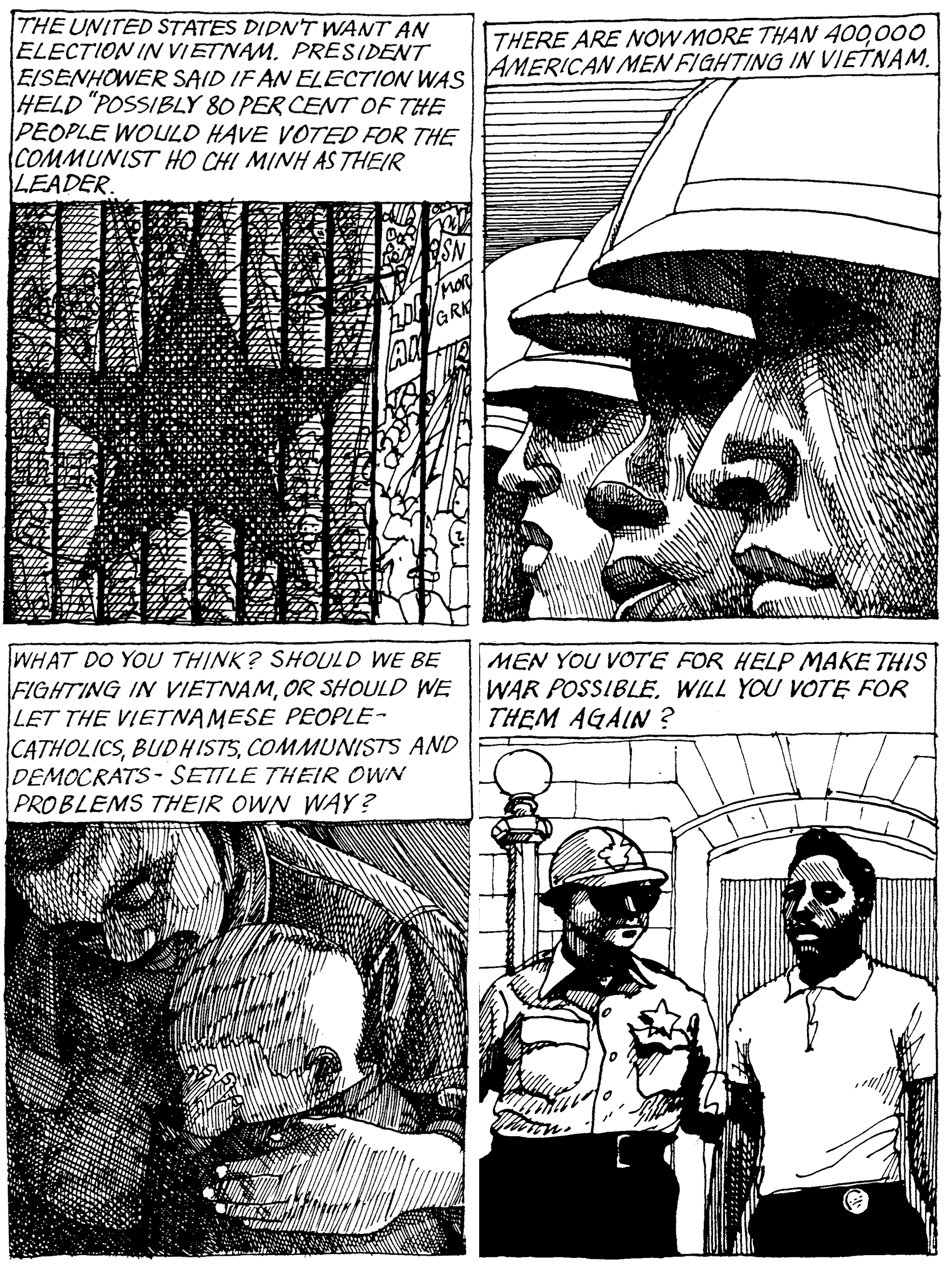Vietnam: An Anti-War Comic Book
Primary Document by Julian Bond, T. G. Lewis (Illustrator)
The Vietnam comic book, written by Civil Rights Movement activist Julian Bond and illustrated by T. G. Lewis in 1967, provides a detailed history and analysis of the Vietnam War in an easy-to-read format. The comic helps to uncover the truths about a key period in U.S. history and can be used to gain insights into contemporary U.S. foreign policy.
An essential companion text is Martin Luther King Jr.’s speech at Riverside Church, “A Time to Break the Silence,” in which he explained why he saw it necessary to link the causes of peace and civil rights. He also questioned whose side the U.S. government was fighting on:
They must see Americans as strange liberators. The Vietnamese people proclaimed their own independence in 1945 after a combined French and Japanese occupation, and before the Communist revolution in China. They were led by Ho Chi Minh. Even though they quoted the American Declaration of Independence in their own document of freedom, we refused to recognize them. Instead, we decided to support France in its reconquest of her former colony.
. . . I speak as a child of God and brother to the suffering poor of Vietnam. I speak for those whose land is being laid waste, whose homes are being destroyed, whose culture is being subverted. I speak for the poor of America who are paying the double price of smashed hopes at home and death and corruption in Vietnam. I speak as a citizen of the world, for the world as it stands aghast at the path we have taken. I speak as an American to the leaders of my own nation. The great initiative in this war is ours. The initiative to stop it must be ours.
Students can explore the stance of some civil rights organizations that thought that positions on the war and civil rights “don’t mix.” For example, the NAACP and the National Urban League viewed Pres. Lyndon Johnson as the best president African Americans ever had. In four short years, Johnson had pushed through the Civil Rights Act and Voting Rights Act, effectively destroying Jim Crow. They thought King was betraying Johnson and, by extension, the Movement. The NAACP issued the following statement after King’s remarks:
Civil rights battles will have to be fought and won on their own merits, irrespective of the state of war or peace in the world. We are not a peace organization nor a foreign policy association. We are a civil rights organization. The N.A.A.C.P. remains committed to its primary goal of eliminating all forms of racial discrimination and achieving equal rights and equal opportunities for all Americans. We are, of course, for a just peace. But there already exist dedicated organizations whose No. 1 task is to work for peace just as our No. 1 job is to work for civil rights.
Julian Bond, himself expelled from the Georgia House of Representatives in 1966 for his antiwar stance, asks in the comic book for African Americans to make up their own mind about the war. He argues that those against the war have also fought for civil and human rights, and those who support the war have opposed the Black community’s fight for self-determination as viciously as they opposed self-determination for the Vietnamese people. The choice, according to Bond and other Movement activists, was clear.
The comic is available in full by following the links in the buttons. Below are selected panels.






